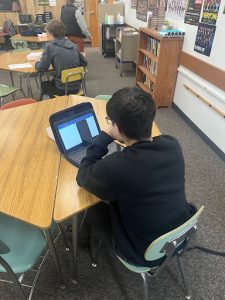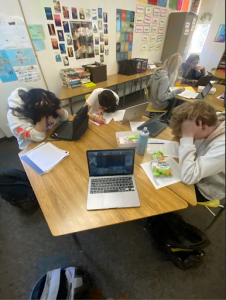Is Online Learning Having a Negative Effect?
October 28, 2020

Ah yes, distance learning. The perfect pandemic, sky-is-falling-down sort of school solution. We may assume working or going to school online is easier than going to school in real life. We may even decide online school is easy. But for some students, online school is a difficult and stress-filled experience. This manifests itself in scientific studies and the words of students.
In their study titled “Perceived stress among students in virtual classrooms during the COVID-19 outbreak in KSA,” we see the ever-common idea of the ease of online school being challenged by the authors, Deemah A. AlAteeq MBBS, Sumayah Aljhani MBBS, and Dalal AlEesa MBBS. Because online school, for all of its benefits, comes with hidden difficulties. These are in several different ways and have been found, by the Saudi Arabian Study, to be common and far-reaching. The reality is that online learning is a great deal more stressful than any of us would have previously thought.
According to the authors of this Saudi Arabian study, over ½ of participants showed stress from distance learning. The authors specify this observation. “More than half of the participants showed moderate stress levels (55%), while 30.2% registered high stress levels.”
And according to Anna North in a Vox.com (a news website started by Vox Media) article titled “Remote school during Covid-19 has kids isolated and stressed”, the current pandemic and remote learning could “…lead to a spike in mental health problems among kids.” This would be a major and unintended consequence of remote learning. Another study, in the Hubei Province, in China, discovered “… that 22.6 percent reported depression symptoms and 18.9 percent had symptoms of anxiety after about a month in lockdown.” This is proof that there is a significant amount of stress and that even early on, it is affecting young people learning online negatively.
However, studies on student stress and distance learning are not widespread. In fact, they prove this point as the Saudi Arabian study does. “To our knowledge, there are currently no studies that have addressed stress among students during the quarantine related to the COVID-19 pandemic.” (The study is from April 27, 2020.) Those who argue the information is not widespread enough and that e-learning is easier than regular school would be right to make the case. Some of the stress stems from quarantine.
It obviously is not just online learning. This is a multi-faceted problem, as Erin Richards of USA Today writes. “With the sudden halt to in-person learning, many students missed their friends, yearned to be out of the house, developed erratic sleep habits and drove their (often working) parents crazy.”
The Stevens Point situation is a bit different than most other school situations. There is an option to go back to school two days a week. However, there is a new plan from the school district to either let kids stay home and learn full time through the OLC or go to school on the cohort schedule. (Although this plan may change given the virus.) This OLC learning may be stressful for some due to it being an online curriculum with no peer interaction and limited interactive teacher support.
To better explain the main student concerns and go beyond studies, one junior (who is anonymous), consented to an interview. They are a flexible e-learner and it really helped the writing process with their comments. When asked why online school was difficult if at all, the junior started off with an unseen concern that some students have felt. “First of all, I kinda feel it’s kinda difficult to kind of… get a routine going and be able to manage my time well.” This was interesting. People do not usually consider that although online learning is safe, that structure and environment now falls into the hands of a student. One who has to plan their education, something students did not have to do before. Because beyond all the studies, the thing that is not noticed is the responsibility shift for many students. The junior also mentioned another thing worth considering. When asked about how online school differed from regular school, they replied “…you need to be able to interact with people, I feel… doesn’t work.” This is the interactive piece, an important part of any education. Because with online learning, not only is the structure lost, but so is the interactive component.
Another problem is that our teachers are stretched thin. This is something we do not often think about. (And we should frankly think about it more often.) All from having to give lessons for several classes, as many do, for both online and in-person learning. The truth is that in spite of what some of us are feeling, teachers are going through a greater challenge. Not only do they have the student concerns, they have an administration making plans for them that have changed wildly, they spend extensive time grading, and make lesson planning that has to fit two formats. And they, like some students, have to do work at home. And at any moment, a parent could reach out to them and take up their valuable time for grading and lesson-planning, exceptionally difficult to handle when you need to be in two places at once.
Finally, please be understanding. While we certainly want students to succeed academically, parents and students should be mindful. These truly are unprecedented times, not seen for over one hundred years in the United States. This is going to be a learning experience, to say the least.



































































